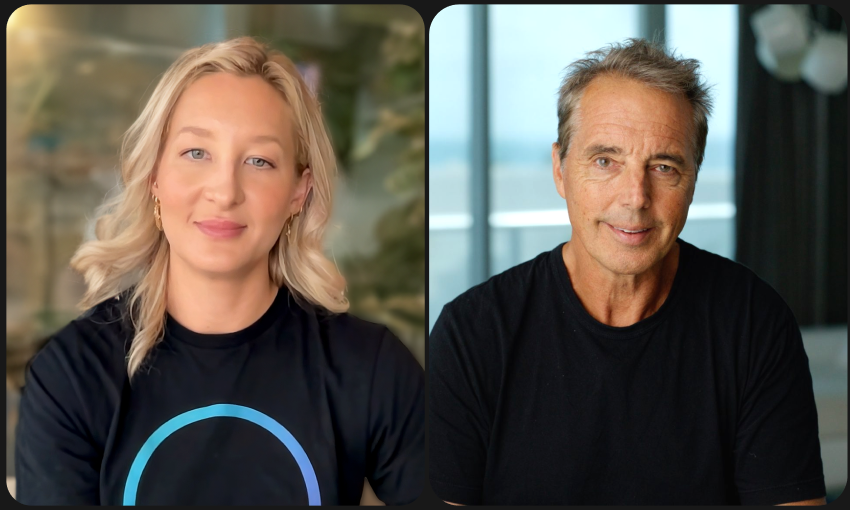Dan Buettner's Blue Zone tips for living longer


Healthy aging has always been a topic of fascination and importance, and no one understands this better than Dan Buettner, an internationally recognized explorer, National Geographic Fellow, and bestselling author. Buettner has dedicated his career to unraveling the secrets of longevity, resulting in the remarkable concept of Blue Zones and the Blue Zones diet.
Blue Zones, a term coined by Buettner, refers to geographic areas worldwide where people live significantly longer, healthier lives. These include five specific regions: Okinawa, Japan; Sardinia, Italy; Nicoya, Costa Rica; Icaria, Greece; and Loma Linda, California. Intriguingly, people living in these regions not only live longer but are also likely to reach the age of 100 at remarkably high rates.
Mia Dige, metabolic coach at Lumen sat with Dan Buettner to discuss the intricate link between metabolic health and longevity. Watch them chat about tips you can incorporate even as simple as removing the toaster from the counter, eating like your ancestors, and going for a walk.
Understand more about your body, take our metabolic health quiz here.
Snippet from the session:
Dan: The genesis was an effort to, in a sense, reverse engineer longevity. So starting with the, I think, widely accepted assumption that only about 20% of how long we live as a population is dictated by our genes. The other 80% is something else. Well, what is that 80% something else? Instead of searching for that in a test tube or a Petri dish or some, some sort of genetic encoding. We worked with demographers for two and a half years actually to identify pockets around the world where people are living measurably longest. And the assumption being here
Mia: Yeah.
Dan: That if populations are achieving it, they’re doing something right. And when I say living the longest, to your point, they don’t have better machines, biological machines than you, me, or anybody listening have. They have an average set of genes, average machines, they’re just getting an extra decade out of it. And it tends to be a decade without the diseases you’re talking about, obesity, diabetes, heart disease, certain types of cancers, even dementia.
Snippet from the session:
Dan: The five regions with exceptional longevity: Okinawa, Japan (longest lifespan for women), Sardinia, Italy (longest lifespan for men), the Noro province in Icaria, Greece (eight years longer life expectancy, low dementia rates), the Nicoya Peninsula in Costa Rica, and the Seventh Day Adventists in Loma Linda, California. Common factors include a predominantly whole food plant-based diet.
Dan: Not only that, these regions prioritize having a sense of purpose and living in environments that encourage frequent movement. Their reduced obsession with personal devices compared to many in America results in limited loneliness.
Snippet from the session:
Dan: Common eating patterns in Blue Zones include a substantial breakfast, moderate lunch, and small or no dinner. This eating pattern depletes their carbohydrate stores by the evening, leading to tapping into fat stores during sleep. This eating pattern is less prevalent or easy to adopt in other cultures.
Mia: One of our recommendations follows what you found with the big breakfasts, the medium-sized lunches, and then light dinners. That's the nutritional recommendation we often give here at Lumen. Try to consume most of your starchy carbohydrates in the first half of the day. That will allow the body to basically become more efficient at depleting those glycogen stores for the rest of the day into the night. It's sort of like intuitive carb cycling. So I guess those populations are kind of unconsciously doing that, and their culture is dictating that.
Snippets from the session:
Dan: Similarly, having a junk food drawer that's out of the way, you have to stoop down, reach up high, or walk around the corner of the pantry. This makes a huge difference in how many chips or cookies you eat, as opposed to leaving them on the counter. You know, I like to joke, we're on a seafood diet. We eat the food we see.
Dan: So investing in a really beautiful fruit bowl, putting it in a well-lighted central place and every time we go to the grocery store, filling that. So when you walk through the kitchen, instead of seeing Doritos, You're seeing bananas or apples or oranges or whatever fruit you like.
Mia: Well, amazing. And it follows kind of what we promote here at Lumen, with the device measuring your metabolism and what fuel you are actually burning in real-time. Gaining those real-time insights is helping individuals to make these little changes and rewiring their unconscious mind to make better decisions throughout their day and week. And that's really interesting about the toaster though, I've got to say with the two groups. That's mind-blowing.
Snippets from the session:
Dan: They've evolved recipes that they love. And these are recipes made from simple peasant foods that they know how to make quickly, that it becomes kind of a part of the pastiche of their daily life.
The longest-lived family in the history of the world that we know of called the Melisse family. They live up in the highlands of Sardinia, nine siblings, collective age of 861, oldest sibling is 109.
Every day of their life, they had the exact same lunch. A sourdough bread, a three bean minestrone, kind of a chunky minestrone, used with garden vegetables that were growing, but always three beans, a garbanzo, a pinto, and a white bean. And then they had a small glass, I'm talking two or three ounce glass of wine. Same thing in Costa Rica is the three sisters diet, which is black beans, whole grain corn tortillas, and squash or squash blossoms or pumpkin. Those three foods come together to provide all the complex carbohydrates and amino acids you need, but they're also delicious. It becomes kind of a staple.
So it's somehow transcending mindful habit, which is marketed to us relentlessly and never works to making it part of the ingraining of our lives. And the secret to doing that is... taking the time to find a dozen or so whole-food plant-based recipes.
A tool like Lumen help us shape our environment/lifestyle and better enable us to eat like a Blue Zone person.
Take our metabolic health quiz here.

Dan Buettner is an explorer, National Geographic fellow, award-winning journalist, Netflix host and co-producer of the 3x Emmy Award-winning “Live to 100: Secrets of the Blue Zones,” 5x New York Times bestselling author, and 3x Guinness World Record holder for distance cycling.